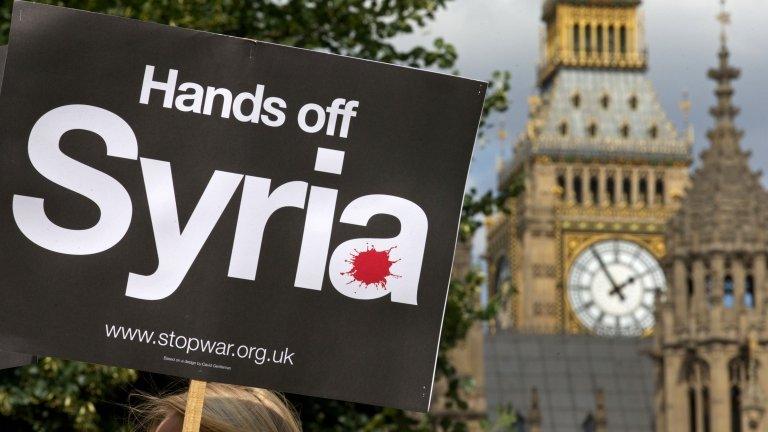Jeremy Corbyn says US air strikes in Syria 'wrong'
- Published
Jeremy Corbyn: US attack 'wrong' without UN backing
Labour leader Jeremy Corbyn has criticised US air strikes against Syria - putting him at odds with the party's deputy leader Tom Watson.
Mr Corbyn said the US should not have acted without United Nations backing.
But Mr Watson told The Birmingham Mail, external the US strikes "appear to be a direct and proportionate response" and chemical attacks on civilians "must have consequences".
The UK's Conservative government has said it "fully supports" the US action.
However, the government may need Labour's support if it wants UK forces to take part in future military action in Syria.
Defence Secretary Sir Michael Fallon said the government would hold a vote in Parliament before taking such action.
He described the US air strikes on an air base believed to be responsible for a chemical attack which killed dozens of civilians as "narrowly focused" and "wholly appropriate".
Michael Fallon: "Limited and appropriate action against the airfield...action we fully support"
Sir Michael told the BBC the UK government had had close discussions with the US over the past few days and had been given "advance notice of the President's final decision".
He stressed the UK had not been asked to join the US action and was "involved in trying to get a political settlement in Syria and we will all be working harder to do that now".
Britain's ambassador to the UN, Matthew Rycroft, said the US attack was a signal to Syrian President Bashar Assad that time was running out for him.
"The United Kingdom supports the US air strike on al-Shayrat airfield because war crimes have consequences and the greatest war criminal of all, Bashar al-Assad, has now been put on notice," he told BBC News.
The US strike comes days after dozens of civilians, including children, died in a suspected nerve gas attack on the rebel-held town of Khan Sheikhoun in north-western Syria.
US President Donald Trump has said there could be "no dispute" that Assad was to blame for the assault.
But Mr Corbyn said the US had acted before a UN investigation had determined who was responsible.
Asked if he believed the Assad regime was behind it, he said: "Fingers are pointing, yes, but let's get the proof from the United Nations first."
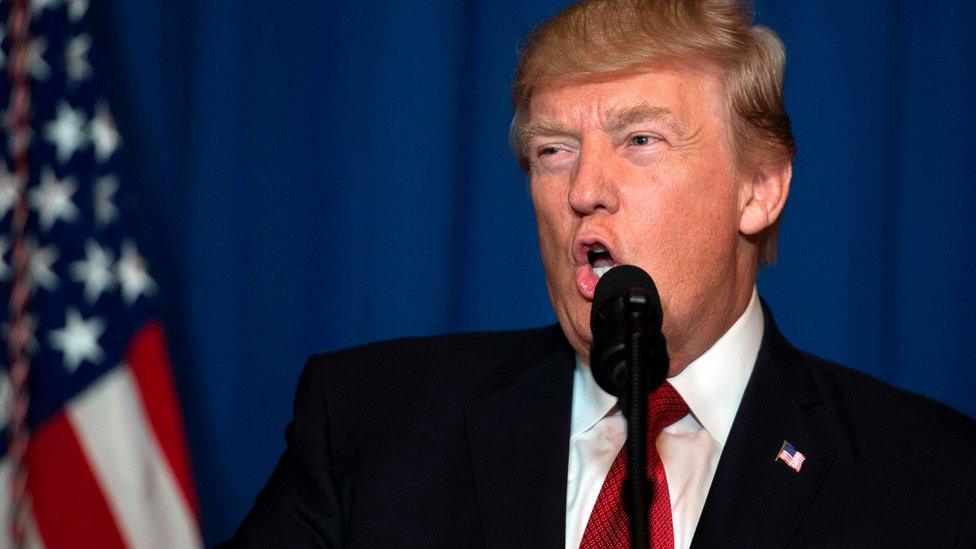
US President Donald Trump has called on "all civilised nations" to help end the conflict
He added: "We think it should have been authorised by the UN if there was to be an attack.
"There should now be an immediate ceasefire and a UN-led investigation rapidly into what is an horrific and totally illegal action by somebody using chemical weapons against innocent people."
He said the US attack risked "intensifying a multi-sided conflict that has already killed hundreds of thousands of people".
The UK government "should urge restraint on the Trump administration and throw its weight behind peace negotiations and a comprehensive political settlement," he added.
Asked about Labour splits on the issue, he said: "I think you'll find we're all agreed on the need for a ceasefire. We're all agreed on the need for the reconvening of the Geneva talks and the need for a political solution in Syria."
Mr Corbyn was backed by shadow foreign secretary Emily Thornberry who said it was wrong for Mr Trump to act alone.

Analysis
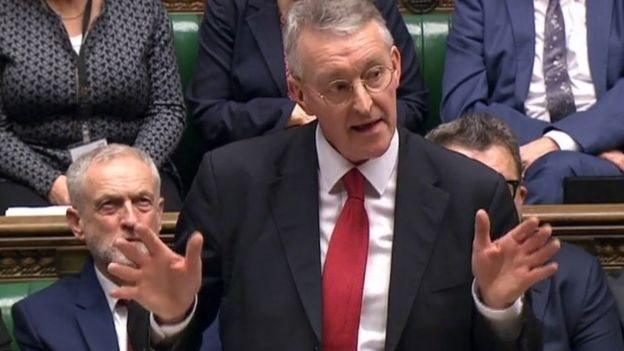
Hilary Benn defied his party leader in 2015 over Syria
By BBC Political Correspondent Iain Watson
Frankly, it would have been more of a surprise had Labour been united on this issue.
So what's the political significance of the latest split?
Well, despite winning two leadership elections it's still clear that Jeremy Corbyn's authority amongst his colleagues at Westminster is limited - the former shadow minister Michael Dugher even jokingly suggested that his party leader's statement on Syria had been cleared by the Kremlin.
There will be a wider significance, though, if Britain is asked to participate in any future action.
David Cameron failed to get enough support from Labour MPs for air strikes in 2013 so, with a narrow majority, Theresa May will be assessing how many opposition politicians are rallying to Mr Corbyn's banner rather than to his deputy.
But perhaps the greatest significance is this: the events in a real civil war in Syria put talk of a Labour civil war in perspective.

Tom Watson told The Birmingham Mail: "These US strikes appear to be a direct and proportionate response to a clear violation of international law by the Syrian regime.
"It's clear from the nerve gas attack in Khan Sheikhoun earlier this week that President Assad had retained a chemical weapons capability, contrary to what was agreed in 2013."
He added: "It's vital that the United States is now clear about its intentions and that the whole international community works towards a political settlement in Syria."
The Pentagon has released video of missiles being launched from US Navy ships, targeted at a Syrian airfield.
John Woodcock, who chairs Labour's backbench defence committee, described the US action as "proportionate" and said it "should have Labour's full support".
And former shadow foreign secretary Hilary Benn tweeted, external: "Let's hope Syria will now think twice before deciding to gas its own people again. Priority must be humanitarian assistance for civilians."
In 2015, Mr Benn defied Mr Corbyn to vote for air strikes in Syria - helping the government win backing for military action in the House of Commons.
But in 2013, Labour's decision to vote with Conservative rebels scuppered then Prime Minister David Cameron's plan to launch air strikes against the Assad regime.
Lib Dem leader Tim Farron backs US air strikes on Syria
Liberal Democrat leader Tim Farron supported the latest US action and said the UK should be prepared to become involved militarily as well.
He said: "The British government, rather than just putting out a bland statement welcoming this, should now follow it up and call an emergency meeting of the Nato alliance to see what else can be done, be that more surgical strikes or no-fly zones.
"Evil happens when good people do nothing. We cannot sit by while a dictator gasses his own people. We cannot stand by, we must act."
The SNP's Alex Salmond said the US strike "seems to dramatically reverse the previous stance of the Trump administration which was to partner Russia and tolerate Assad".
"If the position of the UK government is merely to back any US action whatever it may be then they will find themselves struggling to keep up with the twists and turns of the Trump administration," he said.
Former UKIP leader Nigel Farage, a Trump supporter, urged Britain not to get involved in any further air strikes.
He said: "I am very surprised by this. I think a lot of Trump voters will be waking up this morning and scratching their heads and saying 'where will it all end?'"
- Published7 April 2017
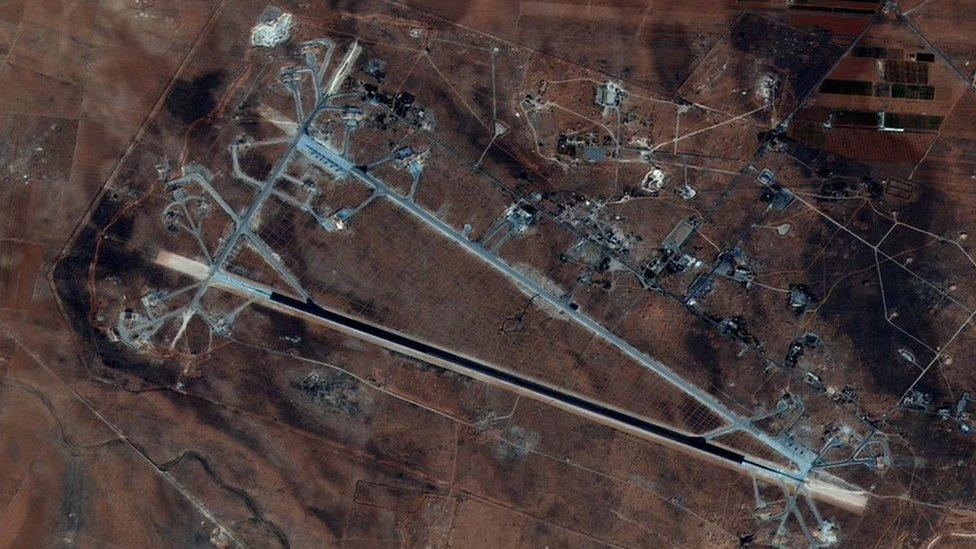
- Published7 April 2017
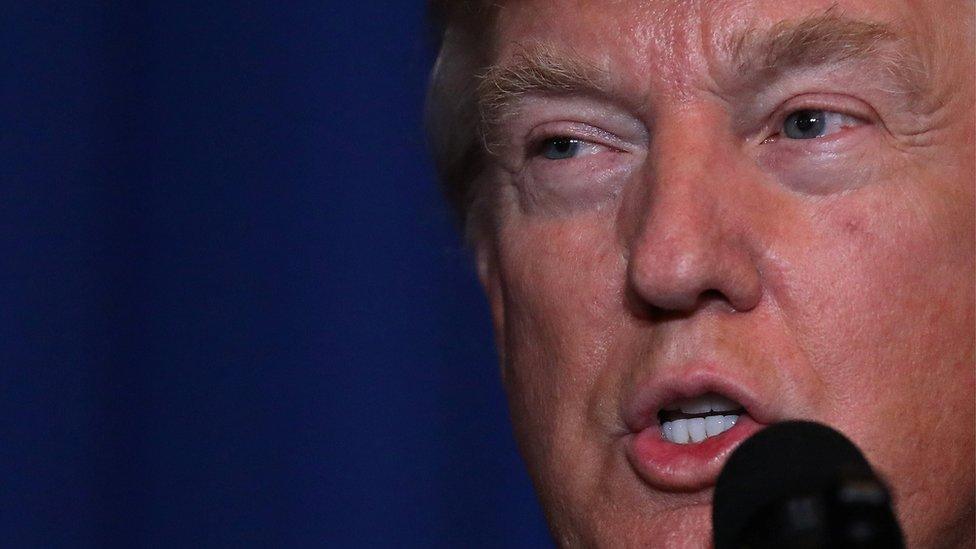
- Published7 April 2017
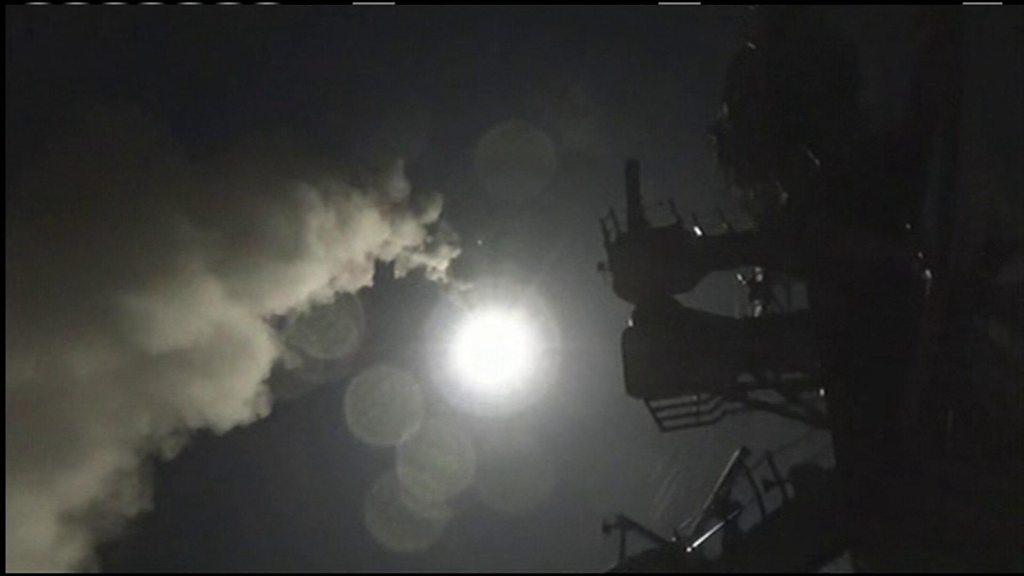
- Published26 April 2017
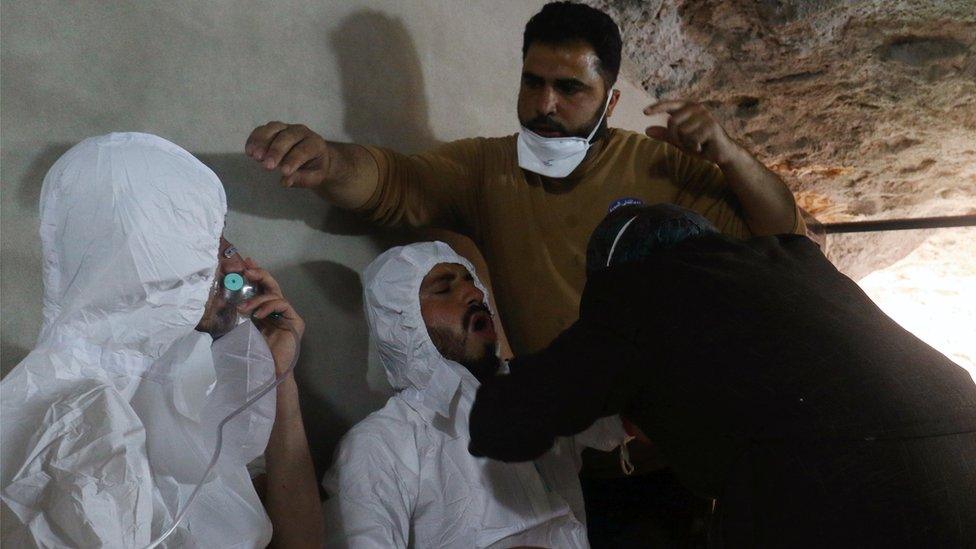
- Published7 April 2017
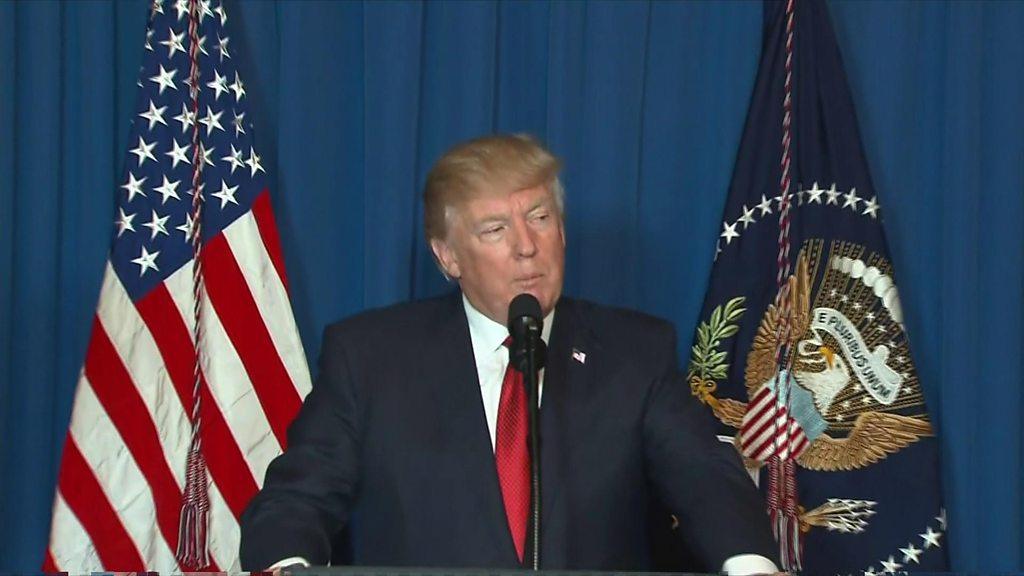
- Published6 April 2017

- Published30 August 2013
